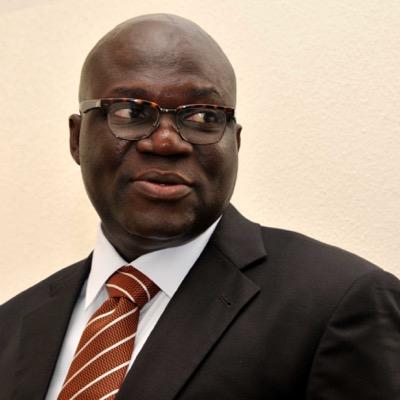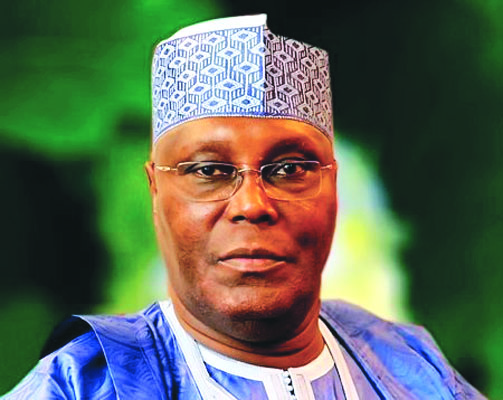Supreme Court And Executive Order 10: Matters Arising, By Reuben Abati
On Friday, the Supreme Court of Nigeria in a split decision voted 6-1 to nullify Executive Order 10 through which the Federal Government of Nigeria had sought in 2019, to give effect to Section 81 (3) and Section 121(3) of the 1999 Constitution, as altered by the 4th Alteration Act No. 4 of 2017, with regard to the financial autonomy of state judiciary and legislature which had been observed more in the breach by state governments and their Chief Executives. The Governors of the 36 states of the Federation had kicked against the Executive Order as an abbreviation of their rights under the 1999 Constitution. Collectively they elected to go to court, and hence asked the Court (a) to declare the Executive Order 10, unconstitutional and illegal; (b) compel the Federal Government to take up funding of capital projects for State High Courts, Sharia Court of Appeal and Customary Court of Appeal, and (c) refund to the 36 states a sum of N66 billion, being amount which they claimed to have spent on capital projects for the three courts in their respective states. To resolve the matter, the Supreme Court in addition to its panel of seven Justices invited five Senior Advocates of Nigeria (SANs) as amici curiae (friends of the Court). On Friday, the court ruled 6-1 that the Executive Order 10 is ultra vires, unconstitutional, illegal, and therefore null, void and of no effect whatsoever. Their Lordships also resolved, 4-3 that the 1999 Constitution already expressly spells out the responsibility of the states and the Federal Government concerning the funding of the State High Courts, Sharia Court of Appeal and the Customary Court of Appeal, even if it is silent on capital projects. In sum, the Supreme Court rejected the request of the Attorney General of Abia State and 35 others with regard to the aforementioned (b) and (c) parts of their prayers.
Many commentators have so far tried to be diplomatic in their response to the ruling, but from the outcome as reported, it is not difficult to see that what the Supreme Court has done is to take a technical view of the matter and offer a strict interpretation of the Constitution, the powers of the President, the relationship between the states, and the limits of the Federal Government in the exercise of its powers as spelled out in the 1999 Constitution. Did the President of Nigeria actually act ultra vires? Justice Mohammed Dattijo, delivering the lead judgment declared that “This country is still a Federation and the 1999 Constitution it operates is a federal one. The Constitution provides a clear delineation of powers between the state and the Federal Government. The President has overstepped the limit of his constitutional powers by issuing the Executive Order 10. The country is run on the basis of the rule of law.” Okay. The law is what the judge says it is. The powers of the various tiers of government are defined in Sections 4, 5, and 6 of the 1999 Constitution pursuant to the doctrine of the separation of powers. Executive powers are vested in the President in Sections 5, 130, 132, 148(1), 151 such that in general, the President of Nigeria is one of the most powerful executives in the world invested literally with the status of a constitutional monarch. In Section 130 (2), he is actually described as “the \Head of State, the Chief Executive of the Federation and Commander-in-chief of the Federation.” The strong effect of the ruling by the Supreme Court in A.G. Abia and 35 ors vs. AG Federation is that there are limits to these powers, nonetheless.
By seeking to enforce and extend Section 121(3) of the 1999 Constitution, the President, in other words, encroaches on the right of state governments to receive money from the Federation Account on behalf of the state judiciary and legislature and transmit their share to them. Thus, the Federal Executive overreaches itself when it assumes it has the powers to strengthen Section 121(3) through what amounts to additional legislation. It is the duty of the legislative arm of government to make or amend laws under Section 6. EO 10 further amounts to an interpretation of the law by the Federal Government and that Executive arm of government acting as adjudicator. The powers in that regard belong to the judiciary under Section 6. So, while the EO 10 would have protected the judiciary against the rascality of state Governors riding roughshod over the judiciary and the legislature at the sub-national level, and the judiciary would have been a beneficiary of the order, their Lordships looked beyond benefit to the judiciary and took a strictly purist and technocratic view of the law. It would be wrong to assume that the judiciary has ruled against itself. If the Federal Government is allowed to overreach itself and the President permitted to usurp the functions of the legislature and the judiciary, that would be a prescription for anarchy and an endorsement of dictatorship.
The lead judgment emphasizes the rule of law, separation of powers, the limits of powers and the federal principle. I would like to see the state legislatures begin to perform their oversight functions, to call over-bearing Governors to order. The judgment has also been described as victory for the Governors. It is most ironic that these same Governors are benefiting from a principle they themselves do not respect, an emphasis on the rule of law they have no regard for. In various states, Nigerian Governors are worse than tyrants. They seek to control judges, bribe them, humiliate them and violate their independence and integrity. It will be recalled that in one state, Cross Rivers State to be specific, magistrates not too long ago – January 2021- carried placards and organized protests because their salaries had not been paid for 24 months and nothing had been done to provide them good working conditions. State Governors also intervene unnecessarily in the appointment of judges, and seek to compromise them. As for the State legislatures, state Governors preside over them remotely. They behave like messiahs with the control of everything else. State legislatures in Nigeria are in any case pathetic. The members behave like the Governors’ houseboys, especially when the Governor’s party has the majority in the House. I argue that although the 36 State Governors may have secured partial victory in the matter of EO 10 with the Federal Government, but they lack the right to claim any moral high ground.
The judex may never at any time go to court to sue the state Executive arm of government, that would be strange but the abuse of privilege by state Governors actually got so bad, that in 2015, the Judicial Staff Union of Nigeria (JUSUN) went on strike for two weeks. In 2020, they shut down the courts for 64 days. State Governments hurriedly signed a Memorandum of Action (MoA), the National Judicial Council also made an appeal before the strike was suspended. JUSUN asked for financial autonomy for the judiciary. The body insisted on compliance with the Constitutional provision which places the budgets of state judiciary as a first line charge on the Constitution. They have a point.. I would also like to see the state legislatures begin to perform their oversight functions, to call over-bearing Governors to order.
What the Governors do to Local governments is even worse. They rely on the powers of control conferred on the state government under Section 7 to render local councils totally ineffective. Governors decide on whether elections would hold at that level of government or not, and when they frustrate due process they appoint sole administrators or caretaker committees. They hide under the State-Local Government Joint Account and the associated committees to steal money meant for local councils. They get away with blue murder because nobody challenges them.
To put the matter in perspective, the Federal Government in 2019 introduced Executive Order 10 to correct the wrong being committed by the State Governors. It also introduced through the Nigeria Financial Investigation Unit (NFIU) a set of guidelines to ensure that state Governors would no longer withdraw monies meant for local council operations from the Joint Account (Section 162 (8)). Daylight robbery of local council resources is one of the reasons the local level of government is virtually dead. The big obstacle against the attempt by the Federal Government to enforce the fiscal autonomy of the local councils was again, the law. This is relatable to the minority judgment by Justice Uwani Abba-Aji who maintained that the EO 10 was in order “because of the hanky-panky and subterfuge played by state Governors against the independence and financial autonomy of state judiciary…This is not unconstitutional.” There has been a tendency to play down this minority view.
On Sunday as anchor of ThisDay Live: The Sunday Talk Show, I had tried to bring up the matter with one of my guests, the legendary Chief Robert Clarke, SAN. Chief Clark had admonished me not to even mention the judge’s name not to talk of offering a summary of his position. But Justice Abba-Aji enjoys the support of Professor Itse Sagay, SAN, who deserves to be quoted at some length: “I just read the judgment” he said. “I was out of the country. I just want to say broadly that I agree with Justice Abba-Aji, the minority judgment. The reason is that the constitution makes it clear that the legislative and judicial branches of state government are to get specific sums of money from what goes to the state. And if the state governors are not making them to have it, all that the executive order has done is to facilitate the implementation of the Constitution. And that is what executive orders are supposed to do. So, the Federal Government was right and I agree with the minority judgment entirely.” What are we dealing with here: form vs substance, the law as it is vs. the law as it ought to be? What is the minority opinion based upon? Was Justice Abba-Aji offering an opinion rather than a strict construction of the law as it is? But whatever it is, the Supreme Court is the apex Court of the land, and the majority decision carries the day, more so as it is focused on the very substance of EO 10.
The Nigerian President is empowered to give orders, and in this regard, there can be a recourse to Section 315(2) of the 1999 Constitution, but this particular section states clearly that the President can only act “in conformity with the provisions of this Constitution”, certainly not in breach of it. The Buhari administration has adopted Executive Orders, the first administration to do so in Nigeria in a manner that looks like a copy-cat imitation of the American Donald Trump’s Presidency. Within the first five months of his assumption of office in 2017, Trump had signed 37 EOs! But even in the US, Executive orders are administrative handmaidens to facilitate the execution of policies within the Executive arm of government, commands to Ministries, Departments and Agencies (MDAs) as instruments of management or to prepare a framework for proposals to the legislature, but certainly not an attempt by the Executive to usurp legislative and judicial functions. To date, the Buhari administration has proclaimed more than 10 Executive Orders. A close scrutiny may reveal that most of them would pass the test. These would include EO 1: on the promotion of transparency and efficiency in the Business Environment; EO 2: On Submission of Annual Budgetary Estimates by all Statutory and non-Statutory Agencies, including Incorporated Companies wholly owned by the Federal Government of Nigeria; EO 3: Support for Local Content in Public Procurement by the Federal Government; EO 4: On the Voluntary Assets and Income Declaration Scheme (VAIDS); EO 5: to promote local content in public procurement with science, engineering and technology components, and to prohibit the Ministry of Interior from issuing visas to foreign nationals whose skills are available in Nigeria; EO 6: on assets connected with corruption and other related offences; EO 7: On Road Infrastructure Development and Refurbishment Investment Tax Credit Scheme; EO 8: On Voluntary Offshore Assets Regulatory Scheme, EO 9: On Companies Income Tax. The problem with EO 10 as appropriately pointed out by the Supreme Court is its breach of constitutional provisions.
It seems to me therefore that Executive Orders are not necessarily in themselves bad; they are good only to the extent that they are in conformity with the basic law, that is the Constitution. Every affirmation of the supremacy of the rule of law is a good sign, but all parties concerned, including the apex court must be seen to be consistent accordingly, and prepared to embark on judicial activism, beyond narrow technicality, for public good, when required to do so. The ruling under review thus throws up more questions than answers: how do we truly ensure the independence of the co-equal parts of government? How do we prevent cynical elements from violating the laws of the land because it is expedient to do so? There are many Nigerians who believe that the 1999 Constitution is the biggest problem of Nigeria and that the Constitution needs to be replaced with a people’s Constitution forged and agreed upon under a democratic dispensation. They also think that for as long as Nigeria is unable to find the political will and the right political leaders to promote unity and national loyalty, so long would the lawmakers and the judex continue to talk about the rule of law in vacuo. In that sense, the Supreme Court ruling under review has not solved any problem. It is instead, a strong reminder, of the inchoateness of the Nigerian essence.




